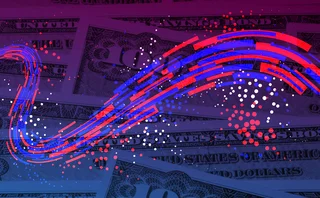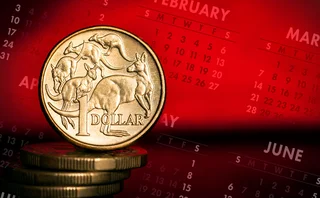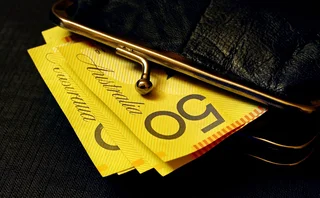
Negative Eonia splits US and EU banks, traders and lawyers
Collateral posters should pay when rates are negative, US banks believe; their European peers are listening to lawyers who say it's not clear cut

During September and October, as Eonia dipped in and out of negative territory, there was a marked difference of tone when talking to US and European banks about whether a poster of euro cash collateral would have to pay rather than receive interest.
As a rule, the US banks assumed lofty, statesmanlike airs, calling on the industry to recognise the importance of the principle at stake – that negative rates are negative rates, and if clearing houses expect a collateral poster to pay interest in those circumstances, so should everyone else.
The European banks were more like school kids who had just managed to stub out and dispose of their cigarettes before the principal walked around the corner. There was a fair amount of smirking and a studied innocence. They were often quite interested in the legal niceties.
It was easy to imagine the conversations between US collateral receivers and European posters during those weeks.
US bank: "We have €3 billion of your collateral. You'll have noticed Eonia is negative. We assume you'll be paying up."
The US banks assumed lofty, statesmanlike airs, calling on the industry to recognise the importance of the principle that was at stake
European bank: "Well, ordinarily, we'd be delighted, but I've just spent two hours talking to our lawyers and they say it's not clear there's an obligation to do so. We're trying to get a definitive answer, of course, but for now we've been instructed not to pay. Yes, yes, I know – I'm as frustrated as you."
Something like that, anyhow.
The divide can be seen in the list of signatories to the negative rates protocol, published by the International Swaps and Derivatives Association in May, which clarifies there is no floor on the interest payable – Bank of America Merrill Lynch, Goldman Sachs, JP Morgan and Morgan Stanley are all on board, but no big European dealers have so far joined them. As of October 29, Danske Bank and ING were the only major European banks to have signed.
Despite all of this, the size of the payments that would be required are small, perhaps running into the hundreds of thousands of euros and possibly touching the millions if Eonia remains negative for any length of time.
When pressed, traders on both sides of the Atlantic hold the same view: if the reference rate is negative, a collateral poster should pay. But lawyers insist the contract does not make that clear, so in the near term it should come as no surprise to see some banks using that defence.
In the longer term, the industry may well get its act together and sign the protocol en masse. But if that happens, I wager it will not be until Eonia is firmly back in positive territory.
Only users who have a paid subscription or are part of a corporate subscription are able to print or copy content.
To access these options, along with all other subscription benefits, please contact info@risk.net or view our subscription options here: http://subscriptions.risk.net/subscribe
You are currently unable to print this content. Please contact info@risk.net to find out more.
You are currently unable to copy this content. Please contact info@risk.net to find out more.
Copyright Infopro Digital Limited. All rights reserved.
As outlined in our terms and conditions, https://www.infopro-digital.com/terms-and-conditions/subscriptions/ (point 2.4), printing is limited to a single copy.
If you would like to purchase additional rights please email info@risk.net
Copyright Infopro Digital Limited. All rights reserved.
You may share this content using our article tools. As outlined in our terms and conditions, https://www.infopro-digital.com/terms-and-conditions/subscriptions/ (clause 2.4), an Authorised User may only make one copy of the materials for their own personal use. You must also comply with the restrictions in clause 2.5.
If you would like to purchase additional rights please email info@risk.net
More on Markets
FXSpotStream expands into US Treasuries trading
Bank-owned streaming venue targets mid-year launch, offering “all you can eat” subscription fees
Crisis-era CDO protection keeps on giving for Athene
Apollo-owned insurer still sees payments from sold CDS protection on a 2006 synthetic resecuritisation
The changing shape of variation margin collateral
Financial firms are open to using a wider variety of collateral when posting VM on uncleared derivatives, but concerns are slowing efforts to use more non-cash alternatives
Will lifer exodus kill Taiwan’s NDF market?
Traders split over whether insurers’ retreat from FX hedging is help or hindrance
How Australia’s inflation overhaul could lure global traders
Australia’s move to monthly inflation reporting set to revitalise local inflation-linked bond and swap markets
Calamos brings popular US autocall ETF to Europe
Dublin filing points to Q1 launch for Calamos Autocallable Income Ucits ETF
Repo clearing: expanding access, boosting resilience
Michel Semaan, head of RepoClear at LSEG, discusses evolving requirements in repo clearing
Aussie inflation traders call for linker buyback scheme
Firms fear liquidity bifurcation as market transitions to new indexation formula








